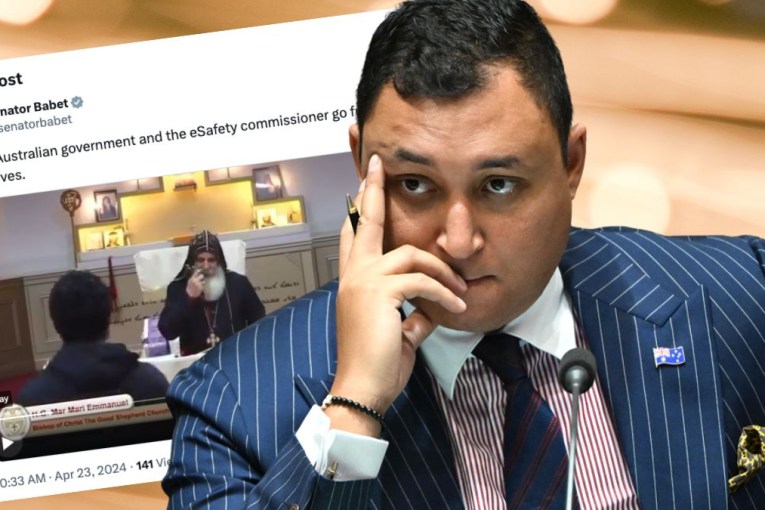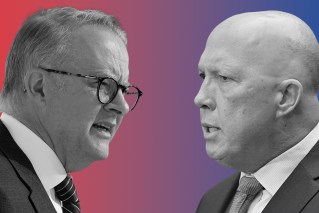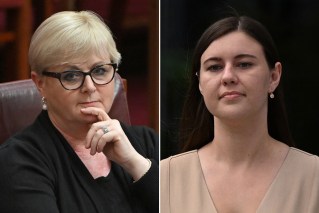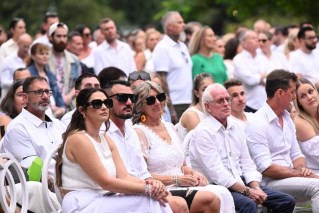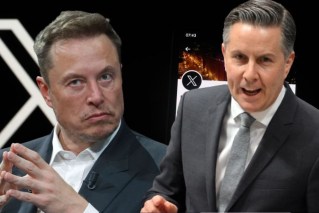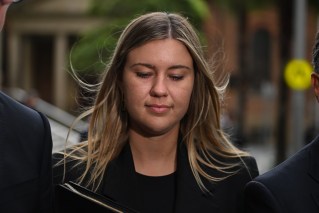‘A thug and a bully’: Australia hits Russia with immediate sanctions

Prime Minister Scott Morrison has lashed Russia as a “thug and a bully” as he announced immediate sanctions over its actions towards Ukraine.
Sanctions and travel bans will target eight members of the Russian Federation’s security council, while existing sanctions imposed due to past Russian aggressions will be expanded.
Russian banks have also been targeted.
Mr Morrison said he expected further sanctions to be announced, targeting more individuals.
“There must be consequences for Russia’s actions,” he said on Wednesday.
“Those who perpetrate them, support those who perpetrate them, those who benefit from all of this must be targeted, isolated and there must be consequences for this type of behaviour. That should send a very strong message to any other bullies and thugs out there that this type of behaviour is not acceptable.”
Australia’s announcement it would join the US, Britain and other Western allies in imposing immediate sanctions came 24 hours after Russian President Vladimir Putin ordered Russian troops into eastern Ukraine in a move he said was aimed at keeping the peace after Moscow recognised the separatist regions of Donetsk and Luhansk as independent.
US President Joe Biden described the action as the beginning of a Russian invasion of Ukraine.
Mr Morrison, who convened cabinet’s national security committee on Wednesday, said there were reports a full invasion would begin within 24 hours. He said Russia needed to understand the world’s condemnation of its decision.
“The invasion of Ukraine has effectively already begun. This invasion is unjustified, it’s unwarranted, it’s unprovoked and it’s unacceptable,” Mr Morrison said in Sydney.
“Australians always stand up to bullies, and we will be standing up to Russia.”
Australian sanctions extended to the separatist regions will target transport, energy, telecommunications, oil, gas and mineral reserves, as well as Russian banks.
Sanctions by the US and Britain will target Russian billionaires and financial institutions, while Germany has put the brakes on a new gas pipeline.
Australia has ruled out direct military assistance and is supporting Ukraine’s cyber-capability. It has left the door open for technical military support but Mr Morrison has declined to elaborate on what the term meant.
There would also be a push on Ukrainian visa applications, with about 430 being prioritised and the more than 1000 Ukrainians outside of Australia who already have visas being welcomed back, Mr Morrison said.
It is believed up to 1400 Australians remain in Ukraine. They include 184 registered for embassy support, which is currently being run out of Poland.
Mr Morrison will speak with his Ukrainian counterpart on Wednesday night and the Polish prime minister leader next week.
“It’s important that we play our part in the broader international community to ensure that those who are financially profiting from an autocrat should have nowhere to run and nowhere to hide when it comes to trying to move their money around,” Mr Morrison said.
The Australian Strategic Policy Institute’s Malcolm Davis said the sanctions would have to increase in severity as Russia expanded its invasion.
“We have to be prepared to impose sweeping waves of sanctions … to really drive the message home to Putin that this kind of behaviour is unacceptable,” Dr Davis told Sky News.
Home Affairs Minister Karen Andrews, who met her counterparts in the Five Eyes intelligence alliance over the Ukraine issue, has voiced concerns about a potential cyber attack on Australian critical infrastructure.
“That doesn’t mean we will go lightly in our response to Russia, because this behaviour needs to be called out,” she said.
Russia’s parliament approved treaties with Donetsk and Luhansk a day after Mr Putin recognised their independence.
Foreign Minister Marise Payne said she consider how to deal with Russian diplomats in Australia “at an appropriate time”. Mr Morrison reiterated there had been no steps so far to remove the Russian ambassador.
But the ambassador has been called in to meet the secretary of the foreign affairs department on Wednesday.
Opposition Leader Anthony Albanese said Western countries needed to be united with sanctions against Russia and that Australia had to join in implementing them.
However, former British ambassador to Russia Anthony Brenton told the ABC previous economic sanctions have had little effect against the country, only knocking off about 0.2 per cent of GDP each year.
“They have certainly not been effective … and while they’ve had little economic effect they have had zero policy effect,” he said.
“The Russians gather around their president when pressure from outside is coming at them and they’ve been pretty tough in their refusal to bend to Western economic pressure.”
-with AAP
